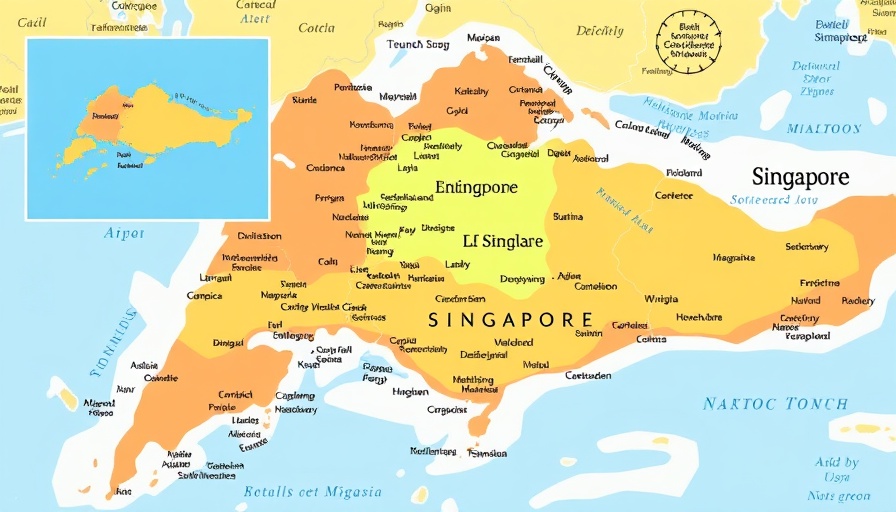
Understanding the Pirate Threat Across Major Waterways
A recent spate of piracy incidents has raised alarms across vital shipping routes in the Singapore Straits, Gulf of Guinea, and Red Sea. The most shocking of these events involved a coordinated attack by 32 pirates, who utilized eight boats to assault a tugboat in broad daylight while it was transporting scrap metal. Such brazen acts not only highlight the tenacity of piracy, but also reflect an alarming trend that poses significant risks to maritime safety and security.
Lost Cargo: The Economic Impact of Piracy on Global Trade
Maritime piracy directly affects the global supply chain, insidiously driving up shipping costs and insurance premiums. In the noted incident, the theft of scrap metal may seem trivial in isolation, but when aggregated across multiple locations and incidents, these losses create a ripple effect. The 2020 Maritime Piracy report revealed that back-to-back attacks can increase shipping costs by as much as 10%. This economic threat reverberates not only through maritime operations but also into global markets.
How Local Authorities Are Combating Maritime Threats
Local authorities in regions plagued by piracy are stepping up their game with preventive measures. In the Gulf of Guinea, for instance, patrols have intensified in response to the kidnapping of three passengers in Nigeria. These tactical decisions aim to deter future attacks and ensure seafarers' safety. However, the technology used to track piracy incidents plays a critical role in the success of these initiatives. Anti-piracy companies like Palaemon are using AI and advanced surveillance techniques to enhance maritime security.
Future Predictions: The Evolution of Maritime Piracy
Experts predict that piracy will evolve, adapting to law enforcement and technological advancements. As anti-piracy measures improve, pirates may shift their strategies or target different regions less monitored by security forces. Understanding this ongoing evolution is crucial for shipping companies to navigate future risks effectively. In addition, the increased use of drones for surveillance could very well become a game-changer in counter-safety efforts. Drones offer a cost-effective and reliable method for monitoring vast oceanic expanses, potentially reducing piracy incidents significantly.
Comparative Analysis: Piracy in Historical Context
Historically, piracy was a prominent issue from the Caribbean to the Mediterranean Seas. Modern piracy, however, has found its hotspots in regions where economic and governmental stability is fragile. A comparison to the Barbary pirates of the 18th century reveals similar tactics of swift, coordinated assaults for profit. This historical context underscores the need for robust international cooperation in combating piracy, much like the naval coalitions that were formed in the past.
Actionable Insights for Maritime Professionals
For shipping and maritime professionals, staying informed about piracy trends and safety measures is paramount. Regular training on emergency protocols, enhanced communication systems onboard, and investment in robust anti-piracy equipment can significantly enhance safety. Additionally, fostering international collaboration among ports could create a more unified front against these threats.
Shifting Perspectives: The Psychological Impact of Piracy on Crews
The psychological toll on crews who navigate pirate-infested waters cannot be dismissed. The fear of attack can create significant anxiety, affecting work efficiency and overall morale. Shipowners must prioritize mental health resources and support systems for their crews. Open discussions about safety, preparedness training, and community support can help mitigate these stresses, allowing crew members to perform with greater confidence.
As the maritime community grapples with the realities of piracy in the modern age, acknowledging the multifaceted nature of these threats and adopting proactive measures is essential. Together, through technology, international cooperation, and community support, it is possible to safeguard our vital trade routes.
 Add Row
Add Row  Add
Add 




Write A Comment